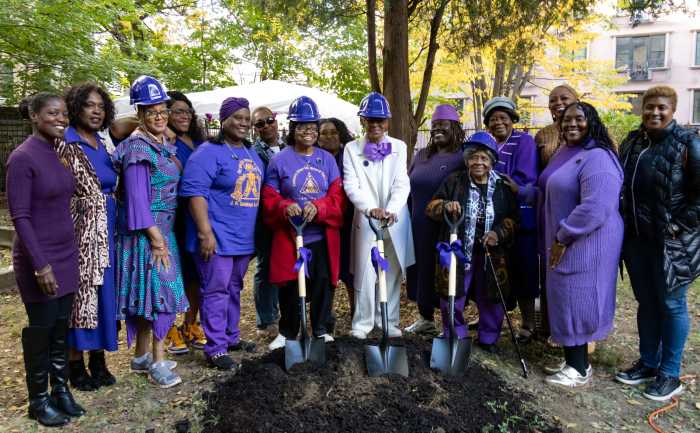A Bedford-Stuyvesant man will spend as many as two decades in prison for raping a teenage girl in 1994, a judge ruled on July 6, closing a case that remained open for more than 20 years — largely thanks to a controversial legal tactic a now-disgraced top prosecutor used to skirt statute-of-limitation rules before state lawmakers revised them.
A Supreme Court justice sent Franklin Gardner, 48, to the slammer for forcing the 15-year-old onto the roof of a building in the public Glenwood Houses complex in Flatlands and raping her at gunpoint.
The teen immediately reported the assault to a neighbor and her parents, and sought treatment at Brookdale Hospital, where doctors administered a rape kit that recovered Gardner’s semen.
His DNA didn’t register any matches with government databases, however, and the case, lacking any suspects, was set to lapse in 2004 under New York State’s then 10-year statute of limitations on first-degree rapes where an offender’s whereabouts and identity are unknown.
But that year, to keep the case alive, District Attorney Charles Hynes — who city ethics watchdogs slapped with a record fine earlier this year for abusing his office during his failed 2013 reelection bid — took advantage of a little-used prosecutorial tactic allowing anonymous, so-called “John Doe” indictments to be filed against unknown suspects whose DNA evidence has been collected to the satisfaction of a grand jury.
That move — which effectively brought charges against Gardner using his then-unidentified semen — paid off more than a decade later when, in 2015, the man by law was forced to provide a separate DNA sample after serving a 20-year stint for carjacking in a New Jersey prison, and investigators later found his genes matched those from the sample taken off the 15-year-old victim more than two decades prior, according to a spokesman for District Attorney Eric Gonzalez.
Opponents of John Doe indictments, including members of civil-rights group the New York Civil Liberties Union, blasted the tactic when disgraced former Assembly Speaker Sheldon Silver introduced a law permitting it in Albany back in 2002, arguing it impaired defendants’ ability to legally challenge the legitimacy of DNA collected via rape kits or other methods as time passed after the initial samples’ retrieval.
“Mistakes in collection, labeling, testing and analysis do occur and samples may be contaminated,” the union wrote in objection to the law on its website. “Ten, 15, 20 or more years after the fact, a defendant will be severely hampered in any effort to challenge those procedures: lab technicians will have forgotten the details of a particular test, or may have moved away or died.”
But the state’s passage of a 2006 law lifting the statute of limitations for first-degree rapes has since largely eliminated the use of John Doe indictments in those cases.

























